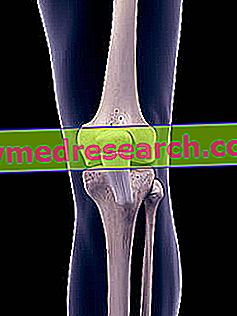Related articles: Ipokaliemia
Definition
Hypokalaemia is defined as a serum potassium level of less than 3.5 mmol / l.
This condition is one of the most common electrolyte disorders and can be associated with a normal or reduced amount of potassium in the body.
Hypokalaemia can result from a deficit of total body potassium deposits (secondary to a reduced intake or excessive losses with the urine or from the gastro-intestinal tract) or from an abnormal displacement of the same within the intracellular compartment. It should be noted that the cause of hypokalemia can be multifactorial, involving more than one mechanism or an etiology.
Renal and gastrointestinal losses
Gastrointestinal potassium loss occurs in situations of chronic diarrhea, vomiting, prolonged aspiration of gastric contents. In some cases, it can also depend on a villous adenoma of the colon or on the ingestion of resins (such as bentonite) that bind potassium and significantly reduce its absorption.
An increase in renal elimination, on the other hand, can be caused by various disorders associated with an excess of adrenal steroids, including Cushing's syndrome, primitive hyperaldosteronism and rare renin-secreting tumors. Renal potassium loss can also be caused by numerous congenital and acquired renal tubular diseases, such as renal tubular acidosis and Fanconi syndrome.
Intracellular displacement
Transcellular displacement of potassium into cells can cause hypokalemia. This can occur in case of glycogenesis during total parenteral nutrition or enteral hyperalimentation (which stimulates insulin secretion), after insulin administration, stimulation of the sympathetic nervous system (especially with β2-agonists that increase cellular uptake by K) and sometimes thyrotoxicosis.
drugs
Among the drugs that cause hypokalemia, diuretics are the most commonly used ones. Also laxatives can cause, especially when abused, hypokalemia by inducing diarrhea.
Other drugs that can cause hypokalemia include Amphotericin B, high-dose penicillin and theophylline (both acute and chronic intoxication).
Possible Causes * of Hypokalemia
- Diabetic ketoacidosis
- Cholera
- Cushing's disease
- Fanconi syndrome
- Reye syndrome
- Zollinger-Ellison syndrome
- Colorectal cancer


